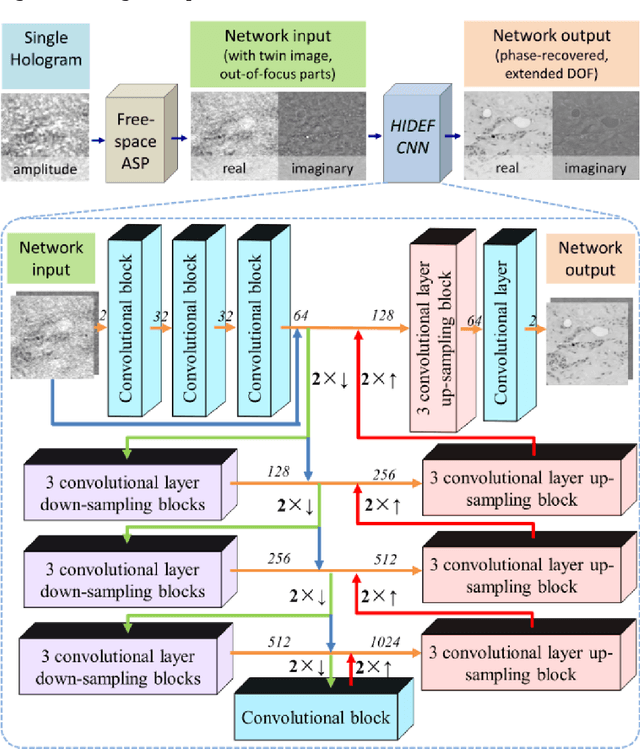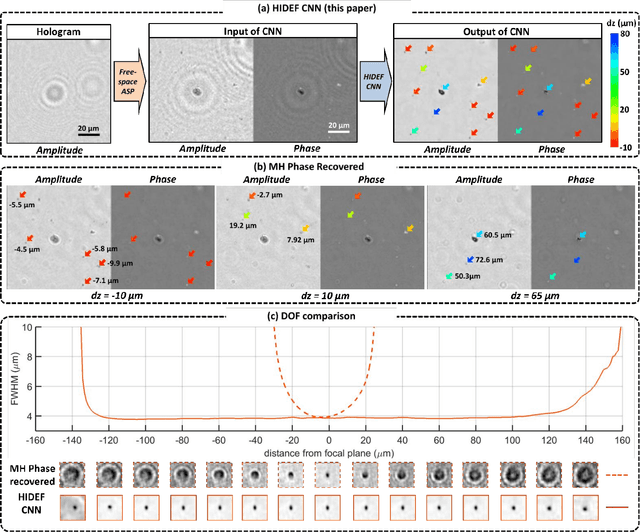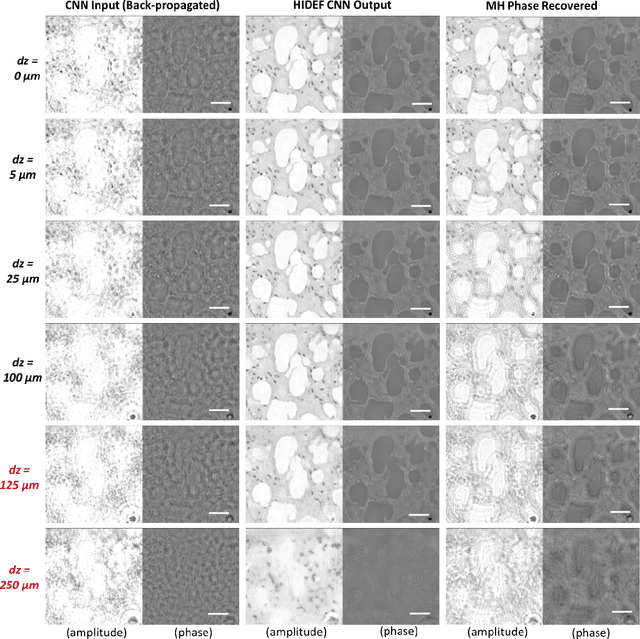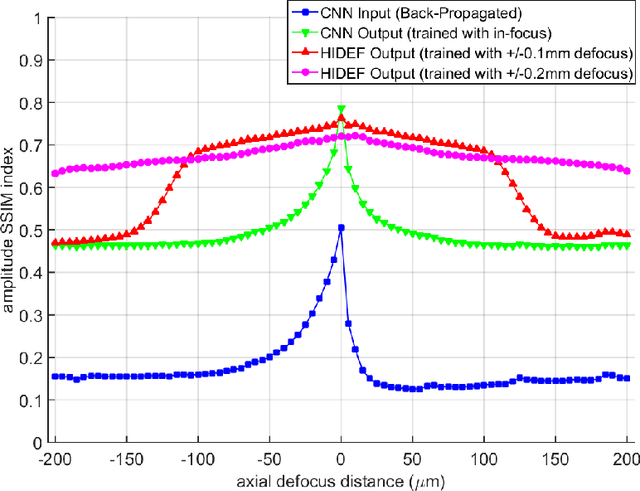Extended depth-of-field in holographic image reconstruction using deep learning based auto-focusing and phase-recovery
Paper and Code
Mar 21, 2018



Holography encodes the three dimensional (3D) information of a sample in the form of an intensity-only recording. However, to decode the original sample image from its hologram(s), auto-focusing and phase-recovery are needed, which are in general cumbersome and time-consuming to digitally perform. Here we demonstrate a convolutional neural network (CNN) based approach that simultaneously performs auto-focusing and phase-recovery to significantly extend the depth-of-field (DOF) in holographic image reconstruction. For this, a CNN is trained by using pairs of randomly de-focused back-propagated holograms and their corresponding in-focus phase-recovered images. After this training phase, the CNN takes a single back-propagated hologram of a 3D sample as input to rapidly achieve phase-recovery and reconstruct an in focus image of the sample over a significantly extended DOF. This deep learning based DOF extension method is non-iterative, and significantly improves the algorithm time-complexity of holographic image reconstruction from O(nm) to O(1), where n refers to the number of individual object points or particles within the sample volume, and m represents the focusing search space within which each object point or particle needs to be individually focused. These results highlight some of the unique opportunities created by data-enabled statistical image reconstruction methods powered by machine learning, and we believe that the presented approach can be broadly applicable to computationally extend the DOF of other imaging modalities.
 Add to Chrome
Add to Chrome Add to Firefox
Add to Firefox Add to Edge
Add to Edge